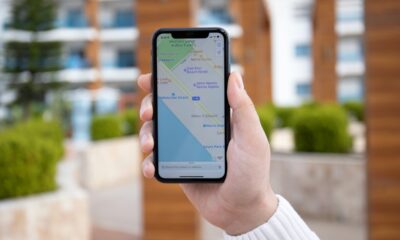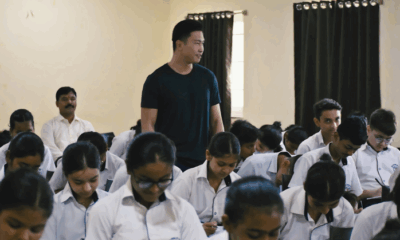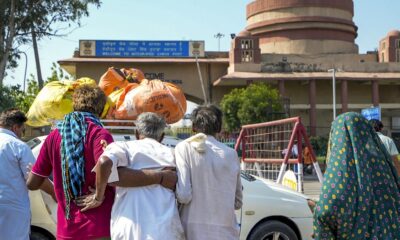A plea agreement that could result in the release of Julian Assange, who has been pursued for years over WikiLeaks’ publication of classified documents, was cautiously welcomed by Australian leaders.
Prime Minister Anthony Albanese stated on Tuesday that there was no benefit in keeping the Australian citizen incarcerated.
Chartered by Mr. Assange, a plane landed in Bangkok on Tuesday as he made his way to the Northern Mariana Islands, a U.S. commonwealth in the Pacific. He is expected to appear in a U.S. federal court on Wednesday.
The U.S. Justice Department stated in a court filing that Mr. Assange is expected to plead guilty to an Espionage Act charge of conspiring to unlawfully obtain and disseminate classified national defense information.
If the plea agreement is accepted by a judge, Mr. Assange is anticipated to return to Australia.
Public support for Mr. Assange has increased in Australia during his years of avoiding extradition by seeking refuge in the Ecuadorean Embassy in London and later during his time in Belmarsh Prison.
Since his government took office in 2022, Mr. Albanese has been advocating for the United States to end its prosecution of Assange. The situation was viewed as a test of the prime minister’s influence with President Joe Biden.
Despite initially supporting U.S. criticisms of WikiLeaks in 2010, Mr. Albanese has been lobbying for Assange’s release as he has not violated any Australian laws.
Mr. Albanese informed parliament that Australian High Commissioner to the U.K. Stephen Smith accompanied Mr. Assange from London.
“The government is aware that Australian citizen Mr. Julian Assange has legal proceedings scheduled in the United States. While this development is positive, we understand the importance and sensitivity of these proceedings,” Mr. Albanese stated in parliament.
“Regardless of opinions on Mr. Assange’s actions, the prolonged nature of this case serves no purpose. Keeping him incarcerated further is not beneficial, and we aim to bring him back to Australia,” Mr. Albanese added.
Foreign Minister Penny Wong acknowledged the efforts of various lawmakers advocating for Mr. Assange, including members of the Bring Julian Assange Parliamentary Group who traveled to Washington with a letter signed by 60 Australian lawmakers calling for the end of the prosecution.
Ms. Wong stated that Mr. Albanese had spearheaded the Australian campaign, discussing Mr. Assange with President Biden and British Prime Minister Rishi Sunak. “We want to see Mr. Assange reunited with his family in Australia,” Ms. Wong told the Senate. She also revealed that Mr. Assange had declined Australia’s offer of consular visits until April last year.
Australia argued that there was a discrepancy in the treatment of Mr. Assange and U.S. Army intelligence analyst Chelsea Manning, a WikiLeaks source. Former U.S. President Barack Obama commuted Manning’s sentence, leading to her release in 2017.
During a visit to Australia last year, U.S. Secretary of State Anthony Blinken opposed Mr. Albanese’s stance, citing the seriousness of the criminal allegations against Mr. Assange.
Support for Mr. Assange transcended political affiliations in Australia.
Opposition lawmaker Barnaby Joyce, an Assange supporter, described the plea deal as a positive development. “We must remain cautious as this process unfolds because the conclusion has not yet been reached,” Joyce stated.
“Although I may not agree with the morality of his actions, Mr. Assange should not be prosecuted as he did not commit a crime in the United States,” Mr. Joyce added.
Opposition foreign affairs spokesman Simon Birmingham also welcomed the apparent resolution of the prosecution. “We have consistently emphasized the importance of respecting the U.S. and U.K. justice systems,” Birmingham stated on social media.
An motion supported by 86 lawmakers, including Albanese, in the 151-seat House of Representatives in February called for the U.S. and Britain to bring the matter to a close so that Mr. Assange could return home to Australia.
‘Power of quiet diplomacy’
Christine Assange, Julian Assange’s mother, expressed gratitude for the plea deal, stating that it demonstrates the significance and effectiveness of quiet diplomacy. “I am thankful that my son’s ordeal is finally coming to an end,” she remarked.
John Shipton, Julian Assange’s father, thanked his son’s supporters in a radio interview in Melbourne, acknowledging their role in facilitating his son’s return to Australia. “It appears that Julian will soon be free to return to Australia, and I extend my thanks and congratulations to all his supporters in Australia as well as Prime Minister Anthony Albanese,” Mr. Shipton said.
Stella Assange, Julian Assange’s wife and mother of his two children, awaited her husband’s return in Sydney. She shared an image on social media of her FaceTiming with her husband with the Sydney Opera House in the background. According to her, he was speaking from London’s Stansted Airport before departing the U.K.
Geoffrey Robertson, Julian Assange’s lawyer, likened the case to the negotiations that led to the repatriation of Australian al-Qaida supporter David Hicks in 2007. Robertson emphasized the challenges faced in reaching a resolution due to the Pentagon’s determination to punish Assange.
“The resolution was particularly challenging due to the Pentagon’s strong desire to penalize him,” Robertson stated. “Ultimately, I believe that Mr. Biden wanted to address this issue during an election year, leading to its resolution.”
In 2013, Julian Assange, residing in the Ecuadorian Embassy, made an unsuccessful bid for election to the Australian Senate as a candidate for the WikiLeaks Party.







































